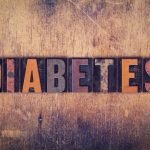Epigenetics- Helping to explain positive outcomes
Bradley R. West, ND
Dietary supplements, botanicals, counseling, homeopathy, physical medicine and most, if not all, other modalities we use in naturopathic medicine often have an unexplainable component. The mechanism of action, or in ‘reductionist’ thinking, the single element or “magic bullet” is often difficult to pinpoint or is actually multifactorial. This rarely is a problem for holistic-minded practitioners as we accept and understand nature, spirit, and the Vis as a higher order with complex and at times unverifiable mechanisms or systems.
However, the current dominant, conventional, allopathic-minded paradigm can be a source of frustration on many fronts and does not typically have this understanding. Through our hard work and perseverance and the very nature that the truth cannot be suppressed forever, this does appear to be changing and our view gaining momentum. The public has begun to embrace and demand natural medicine and organic foods more and more as is evident with the popularity of Whole Foods Markets and other health and nutritional stores and supplements.
In medicine and science, the tide seems to be shifting slightly as well, towards a more open-minded approach that looks at effective holistic or traditional treatments. These might have a long history of clinical evidence or perhaps obvious solid empirical data, such as vitamin D, probiotics or omega-3 fatty acids.
One of the most interesting areas of research in science and biology, particularly genetics and cellular biology, that has recently been receiving attention, is “epigenetics,” which helps to explain some mechanisms and part of the mystery. Epigenetics, or epigenetic control, a term recently popularized by Dr. Bruce Lipton, a US cellular biologist and now author and speaker, refers to it as the ability of diet, lifestyle, and even thoughts to change gene expression and physical outcomes. That is, to go above or beyond our predetermined blueprints and actually change our genes.
Lipton refers to the cell membrane as the brain of the cell, and as a key part of understanding epigenetics. Noting this is a key difference from past scientific dogma that claims this status for the nucleus, he makes the observation that to change the cell membrane molecules, made up mainly of fatty acids, even slightly, profound changes take place.
Dr. Steve Folmar says the word epigenetics has had many definitions and these definitions have changed over time. Initially it was used more broadly, but now it has become more narrowly defined to specific molecular phenomena occurring in organisms.1
Epigenetics was originally coined by C. H. Waddington in 1942 as a combining of the words genetics and epigenesis.2 Epigenesis is an older word which has more recently been used to describe the differentiation of cells from their early state in embryonic development. Waddington coined the term when little was known of the physical nature of genes, so he in essence used it as a theoretical model of how genes might interact with their surroundings to produce a phenotype.
Epigenetics has been further described as “the study of the mechanisms of temporal and spatial control of gene activity during the development of complex organisms.”3 So, epigenetics can really be used to describe anything other than the DNA sequence that influences the development of an organism.
A recent study helps illuminate epigenetics where diet was shown to strongly affect genes.4 In total, 111 healthy elderly subjects with a high omega-3 (EPA and DHA) intake showed a decreased expression of genes involved in inflammatory and atherogenic-related pathways, such as nuclear transcription factor kappaB signaling, eicosanoid synthesis, scavenger receptor activity, adipogenesis, and hypoxia signaling. This helps to explain another way in which the previous unknown mechanisms of action for all the benefits seen in fish oil supplementation, for example, may be working.
Results of this nutrigenomics study were published in the American Journal of Clinical Nutrition where subjects were randomly assigned to 1 of 3 groups that either consumed 1.8 or 0.4 g of EPA plus DHA every day or 4 grams of high-oleic acid sunflower oil per day for 6 months.4
Analysis of gene expression revealed that the high EPA plus DHA supplement resulted in altered gene expression of 1040 genes, while the sunflower oil supplement altered gene expression of 298 genes. The altered genes were involved in inflammatory and atherogenic-related pathways, said the researchers. “Of these genes, 140 were overlapping between the groups, which resulted in 900 uniquely changed genes in the EPA plus DHA group.” “These results are the first to show that intake of EPA plus DHA for 26 weeks can alter the gene expression profiles of PBMCs (peripheral blood mononuclear cells) to a more anti-inflammatory and anti-atherogenic status,” concluded the researchers.
Though the ability of dietary fatty acids, such as EPA and DHA has been well established to improve the outcomes of many disease states, besides the anti-inflammatory effects via the prostaglandin (eicosanoid) pathways, most of the mechanisms have remained unknown. Epigenetics helps close this gap and begins to explain why one herb, food or nutrient can affect so many systems.
This example and study of omega-3’s, which clearly has the ability to improve many chronic conditions without clearly defined reasons, infers that changing the fatty acids in the diet and thus the cell membrane improves genetic expression. This is likely through PPAR and other signals to and from the cell nucleus, altered favorably thanks to a more fluid membrane.
Many top research institutions across the country and globe are studying non-drug therapies and treatments with some outstanding, statistically significant results, published in prestigious journals and are beginning to get more funding from sources such as the NIH.
With the help of time and the subsequent pioneering research and theories like epigenetics that continue to be illuminated, answers to why diet, lifestyle and holistic treatments make such a large impact on our health will become even more apparent and more accepted, confirming what most of us knew all along.
 Bradley R. West, ND is a graduate of NCNM. His focus and training is in holistic care. With an internship as a Hygienic Physician, Dr. Brad uses detoxification and deep healing through fasting, drainage/homeopathy, nutrition and food-as-medicine, exercise therapeutics, targeted supplementation, bioidentical HRT, and functional labwork. His emphasis is on chronic disease treatment, prevention, nature cure, endocrinology and gastroenterology, as well as CFS/FMS.
Bradley R. West, ND is a graduate of NCNM. His focus and training is in holistic care. With an internship as a Hygienic Physician, Dr. Brad uses detoxification and deep healing through fasting, drainage/homeopathy, nutrition and food-as-medicine, exercise therapeutics, targeted supplementation, bioidentical HRT, and functional labwork. His emphasis is on chronic disease treatment, prevention, nature cure, endocrinology and gastroenterology, as well as CFS/FMS.
References
1. Roloff TC, Nuber UA. Chromatin, epigenetics and stem cells. Eur J Cell Biol. 2005;84(2-3):123-135.
2. Waddington CH. (1942) (1977). “The epigenotype”. Endeavour 1:18–20.
3. Holliday R. 1990. Mechanisms for the control of gene activity during development. Biol Rev. Camb Philos Soc. 1990;65(4):431-471.
4. Bouwens M, van de Rest O, Dellschaft N, et al. Fish-oil supplementation induces antiinflammatory gene expression profiles in human blood mononuclear cells. Am J Clin Nutr. 2009;90(2):415-424.









